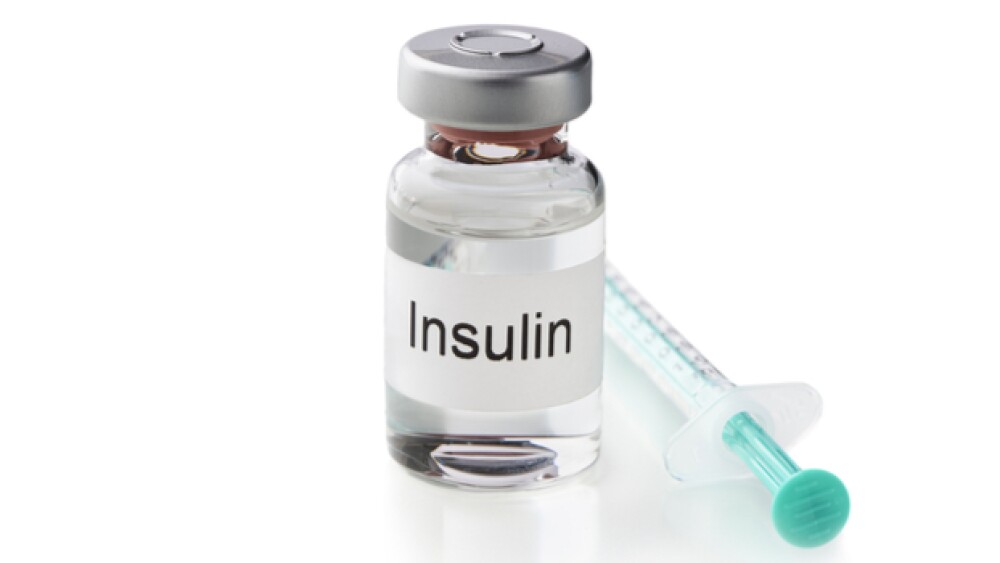In November 2019, the U.S. Food and Drug Administration (FDA) released new draft guidance that would help generic drug companies bring biosimilars to insulin to the market more quickly. And now there are reports that two of the three primary biopharma companies that sell insulin in the U.S. are trying to change that draft guidance.
In November 2019, the U.S. Food and Drug Administration (FDA) released new draft guidance that would help generic drug companies bring biosimilars to insulin to the market more quickly. And now there are reports that two of the three primary biopharma companies that sell insulin in the U.S. are trying to change that draft guidance.
The key focus of the eight-page draft guidance suggested eliminating the need for comparative clinical immunogenicity studies for potential insulin biosimilars under specific situations. A biosimilar is a generic version of a biologic drug, but because it is not a direct copycat, but is instead “similar,” has to undergo a regulatory pathway very similar to that of branded drugs.
The FDA’s rationale was scientific research suggesting a “lack of clinical impact of immunogenicity with insulin,” and notes that the European Medicines Agency (EMA) made the same recommendation in 2015.
The FDA also stated that there were “decades of clinical experience with approved insulin products, including the lack of a correlation between immunogenicity and safety or effectiveness as reflected in approved product labeling for insulin products.”
The draft guidance was then open for comments from the industry. On January 28, 2020, Novo Nordisk said it had “experienced a circumstance of unexpected immunogenicity in response to a new insulin analog which was encountered during its clinical development.”
It went on to say that this “exemplifies the unpredictable nature of immunogenic reactions in response to insulin formulations. As such, we believe caution needs to be applied regarding the broad assumption” in the draft guidance that argues that “if a comparative analytical assessment based on state-of-the-art technology supports a demonstration of ‘highly similar’ for a proposed biosimilar or interchangeable insulin product, there would be little or no residual uncertainty regarding immunogenicity.”
Eli Lilly argues the FDA should revise the guidance to be more specific about where this immunogenicity testing is applied and when.
“Should FDA intend to apply the Draft Guidance to insulin products which were not approved under a section 505(b)(2) application, Lilly believes that good science dictates some amount of clinical immunogenicity data should be required in order to understand the impact of potential differences in immunogenicity profiles on clinical outcomes,” Lilly stated.
The other big company in the insulins market is Paris-based Sanofi, which did not comment on the draft guidance.
Both companies have been under fire for the price and availability of insulin. In January 2020, Lilly added another lower-priced version of its insulin products to the market in response to the criticism. It is offering cheaper versions of Humalog Mix75/25 KwikPen (insulin lispro protamine and insulin lispro injectable suspension 100 units/mL) and Humalog Junior KwikPen (insulin lispro injection 100 units/mL).
Both will be marked down 50% compared to the branded versions and be made available by mid-April. They are identical to the branded versions and may be substituted at the pharmacy.
This was Lilly’s second attempt at introducing lower-cost insulins. In May 2019, two months after regulatory approval, the company’s authorized generic formulation of Humalog went on sale at a 50% lower price than its branded form of insulin. However, an August analysis indicated patients weren’t getting the cheaper version, partly because of lack of awareness of the product.
All three insulin companies have raised insulin prices significantly over the last 10 years. In 2012, a vial of Lilly’s Humalog went for $130 and in 2016, the price was $255.
Novo Nordisk also launched authorized generics of its insulin products at decreased prices, partly in preparation for biosimilar competition.





